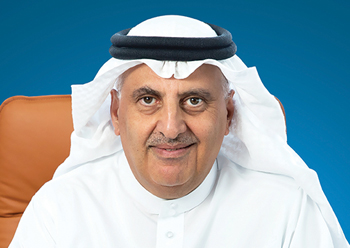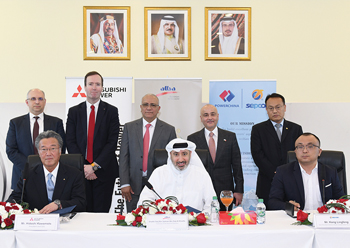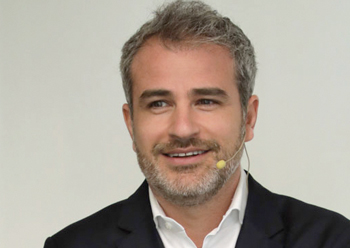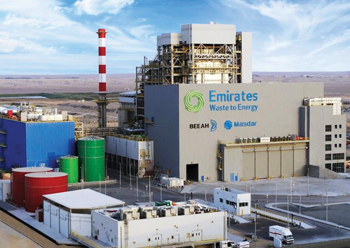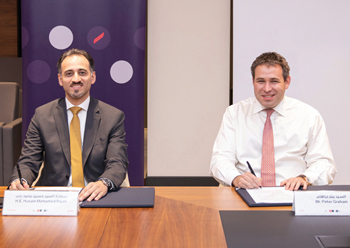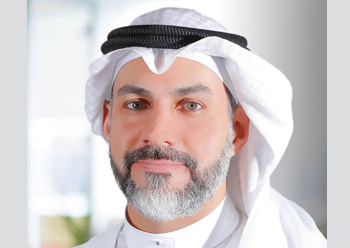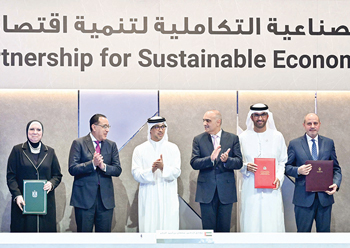
 Officials signing the deal
Officials signing the deal
Emirates Global Aluminium (EGA), the largest industrial company in the UAE outside oil and gas, and GE Gas Power have signed an agreement to upgrade four existing GE 9F gas turbines at EGA’s Al Taweelah power plant.
The upgrade will reduce greenhouse gas emissions intensity, and contribute to the achievement of the UAE’s Net Zero by 2050 Strategic Initiative. GE’s Advanced Gas Path upgrade on the four 9F gas turbines will include hardware and software improvements to drive operational flexibility and increase output, efficiency and availability. This is the first time the technology will be applied to F-class gas turbines in the UAE.
GE will also implement the “Live Outage” concept for the first time globally on its 9F fleet. A new approach to outages, Live Outage is a digitised platform that replaces the paper-based approach, reducing the risk of mistakes or rework, and speeding up the outage process for customers.
Once the work is complete, power output from the four turbines is expected to increase by up to 72 megawatts (MW) for the same amount of fuel consumed. For the previous power output of 920 MW, greenhouse gas emissions will be reduced by up to 74,000 tonnes annually, the equivalent of removing more than 16,000 cars from the UAE’s roads.
Abdulnasser Bin Kalban, Chief Executive Officer of EGA, said: “At EGA, we are committed to embedding sustainability in everything we do. This includes improving the efficiency of our current captive natural gas-fired electricity generation fleet even though we plan to divest these assets and instead source the power we need from the grid.”
Joseph Anis, President & CEO of GE Gas Power Europe, Middle East and Africa, said: “Billions of dollars have been invested in the existing installed base of gas power generation assets in the UAE and around the world.”
Meanwhile EGA also announced that its Al Taweelah site has been recertified to the Aluminium Stewardship Initiative’s (ASI) Performance Standard for its sustainability performance.
The ASI brings together metals and mining companies, end-users of aluminium such as Apple and Nespresso, and civil society and aims to maximise the contribution of the metal to a sustainable society.











